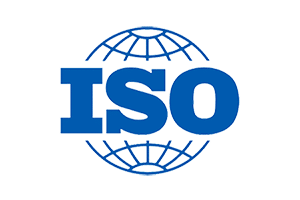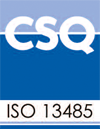What is an International Standard?
International Standards are technical standards developed by experts belonging to international organizations under the coordination of entities such as ISO, the International Organization for Standardization. ISO is the world’s largest developer of voluntary international standards and facilitates world trade by providing common standards between nations.
In this sense, MPEG-G is the only genome sequencing data format officially published as an ISO International Standard.
The benefits of an ISO International Standard
The standard development process is an open process that can be joined by any interested entity (companies, universities, individuals) via national standardization bodies affiliated to ISO. The development of a standard is a collective and collaborative effort that follows open calls for technologies, in which participants’ contributions are selected based on predefined performance criteria.
In comparison to proprietary technologies developed by private companies, research laboratories or individuals, an International Standard offers higher degrees of security and reliability in accessing and using the standard technology in proprietary products by profiting from non-discriminatory and reasonable licensing terms enforced by a well-established ISO policy.
International Standards provide:
- Quality and reliability,
- Consistency in the delivery of services,
- Transparency in production and information,
- Suitability of products for vulnerable populations,
- Credibility of standards to support consumer protection laws, and
- Definition of strict conformance tests.
International Standards issued by ISO, such as MPEG-G, conform to the ISO patent policy requiring that any patent holder is willing to negotiate licenses with other parties on a non-discriminatory basis with reasonable terms and conditions (RAND). This ensures that end users, in most national legislation, are protected against possible dangers generated by opaque IP licensing terms. These legislation protect users adopting MPEG-G from being exposed to future unexpected claims or restrictions on the usage of the technology licensed in conformity to the ISO policy.
Moreover, an International Standard guarantees long term maintenance and possible improvements, while ensuring backward compatibility.
Benefits for products manufacturers
When dealing with products conforming to International Standards, products manufacturers can be confident that:
- Solutions are developed relying on a comprehensive specification which is maintained over time by ISO and will always be openly available.
- Products can interoperate seamlessly, meaning that devices from one manufacturer can work with other devices independently developed by other manufacturers.
- New products can be developed at any moment in time in case the manufacturers of existing components should run out of business.
- Products deployment will be subject to openly available, reasonable and non-discriminatory licensing terms as required by the ISO patent policy.
Benefits for end users
International Standards ensure that end users:
- Are not locked into proprietary solutions, therefore can select a different technology provider without changing the standard components of their own products.
- Will always be able to use and retrieve their data based on the open availability of the standard specifications.
- Will be able to transparently share their data without the need to adapt them according to the nature of the receiving device.
Regulators and governments count on ISO standards to help develop better regulation, knowing they have a sound basis thanks to the involvement of ISO as governing entity supervising the standards development process.
If you want to learn more about MPEG-G standard and its implementations, feel free to contact us.





